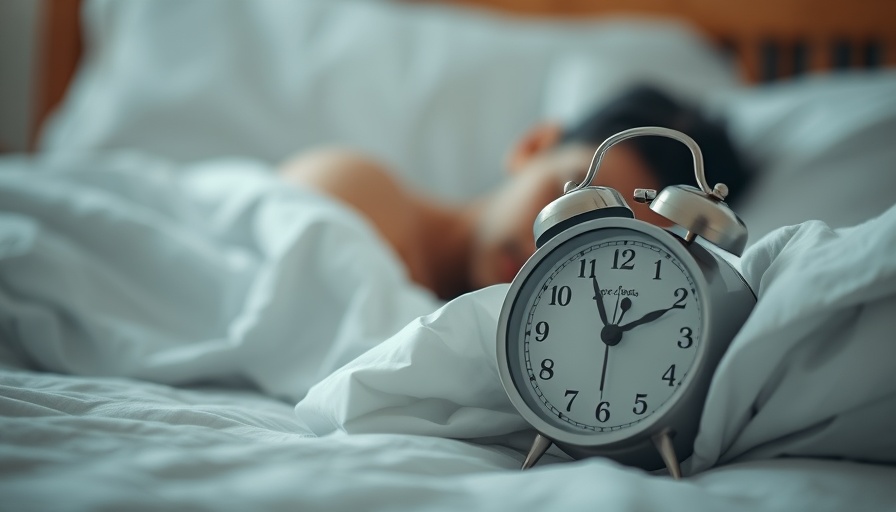
Understanding the Impact of Sleep on Teen Mental Health
As the stresses of school, social activities, and juggling responsibilities increase, many teenagers find themselves sacrificing sleep to manage their busy lives. A recent study highlights a pivotal finding: moderate catch-up sleep on weekends can significantly reduce anxiety symptoms in teens. This research sheds light on the complex relationship between sleep and mental well-being, particularly for adolescents who often struggle with both recovering sleep and growing mental health challenges.
The Sweet Spot: Not Too Little, Not Too Much
According to the American Academy of Sleep Medicine, teenagers aged 13 to 18 should aim for 8 to 10 hours of sleep for optimal health. However, statistics reveal a staggering reality: less than a quarter of high school students achieve this on average school nights. The new study, presented at the SLEEP 2025 annual meeting, identifies the so-called "sweet spot"—around two hours of additional sleep on weekends—where a delicate balance can be struck, leading to reduced anxiety.
Exploring the Research: Key Findings
The study led by Sojeong Kim involved nearly 1,900 adolescents and utilized Fitbit devices to measure sleep duration accurately. The data revealed that adolescents who enjoyed moderate extra sleep exhibited significantly lower levels of anxiety. Interestingly, those who overslept on weekends experienced a rise in internalizing symptoms, underscoring that the quality of recovery sleep is just as important as quantity.
Why Is Sleep So Crucial for Teens?
Ensuring adequate sleep is essential for teenagers, whose bodies and brains are still developing. Beyond reducing anxiety, sufficient rest is linked to enhanced attention, emotional regulation, and improved academic performance. Conversely, chronic sleep deprivation can heighten risks of depression and thoughts of self-harm. Therefore, establishing a consistent sleeping pattern is not merely a sleep hygiene tip; it's foundational for mental resilience.
The Role of Weekends: A Double-Edged Sword
Many teens gravitate toward sleeping in on weekends to recover from sleep lost during the week. Kim points out that while it’s natural to want to compensate for lost rest, too much variability between weekday and weekend sleep can aggravate mental fatigue and anxiety. The key message here is moderation; striving for that sweet spot of recovery sleep is the healthiest approach.
Actionable Insights for Better Sleep
As teens navigate their busy schedules, there are several practical steps they can take to improve sleep quality:
- Establish a Sleep Routine: Go to bed and wake up at the same time every day, even on weekends, to regulate your body clock.
- Create a Restful Environment: Keep the bedroom dark, quiet, and cool to promote deeper sleep.
- Limit Screen Time: Turn off devices at least an hour before bedtime to minimize blue light exposure, which can disrupt sleep.
Encouraging Positive Changes
The findings from this study underscore the need for greater awareness about sleep's role in mental health, particularly among teenagers. By encouraging open discussions about sleep and its importance, families and educators can foster environments that prioritize mental well-being. Whether it’s through small changes in daily routines or broader educational initiatives, recognizing and acting on the value of sleep can make a meaningful impact on the mental health landscape for adolescents.
For teens struggling with sleep disorders or anxiety, understanding the importance of recovery sleep—as delineated in these research findings—could be a game changer. With awareness and the right tools, healthier sleep habits are achievable and can lead to improved mental health outcomes.
 Add Row
Add Row  Add
Add 




Write A Comment